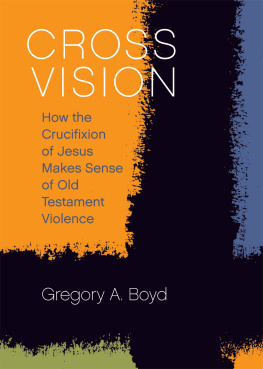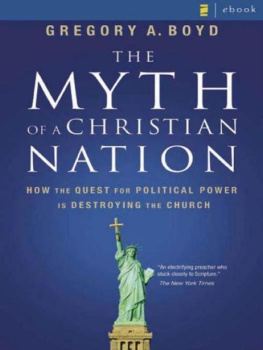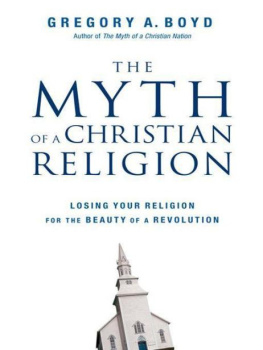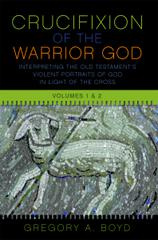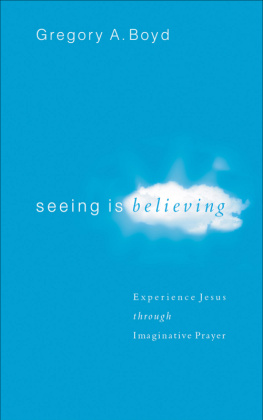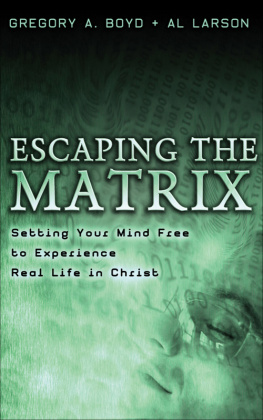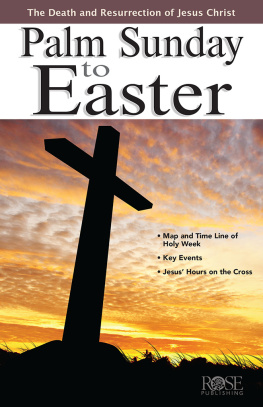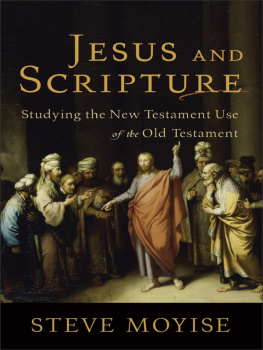Ill tell you all my ideas about Looking-glass House.
First, theres the room you can see through the
glass thats just the same as our drawing room,
only the things go the other way...
the books are something like our books,
only the words go the wrong way...
Alice, Through the Looking-Glass
A Tale of My Strangely Behaving Wife
My wife, Shelley, is as kind, gentle, and compassionate a person as youll ever meet. (Shes obviously also exceptionally wise since she decided to marry me thirty-seven years ago!)
Having established these facts, Id like you to imagine a story.
Suppose I am walking downtown one sunny day and I spot Shelley walking on the other side of a busy street. I shout her name and wave my hand in the air, but the noise of the heavy traffic drowns out my voice and the traffic makes it impossible to jaywalk across the street to greet her. I try to call her on my phone, but she apparently isnt carrying her phone or has it silenced. So I decide to keep pace with her until I arrive at the corner crosswalk.
As we both approach the intersection, I see Shelley come upon a panhandler in a wheelchair. He appears to suffer from mental illness since hes muttering to himself and rocking back and forth while holding out his can for donations. His tattered baseball cap seems to be his most prized possession, for he clings to it as people pass by, apparently afraid that someone might try to steal it. Knowing how compassionate Shelley is, I anticipate that shell probably put a five- or ten-dollar bill in this poor mans can and start up a conversation with him.
But suppose that, instead of showing compassion, my lovely wife suddenly screams at this man at the top of her lungs, knocks his donation can out of his hand, grabs his cap, kicks over his wheelchair, and takes off running down the street!
Obviously, witnessing this would horrify me. But without an opportunity to talk to my wife, how should I understand what I just witnessed?
I could consider the possibility that Shelley had a Jekyll-and-Hyde sort of split personality that shed somehow kept hidden from me for thirty-seven years. But for me to question my wifes character after all our years together feels dishonoring to her and to our marriage. I know my wife, and I have to trust that, despite what I had just witnessed, she has the kind and compassionate character Ive come to know and love over the years.
The only remaining alternative for me is to reinterpret the horrifying event I just witnessed in light of what I know about Shelleys true, compassionate character. Since the cruelty Shelley appeared to display cannot be true, I have to assume that something else must be goingon that I am not aware of.
For example, maybe Shelley had volunteered to be part of a sociological experiment to test how people respond when witnessing a shocking assault. Or maybe Shelley and the panhandler had agreed to play roles for Candid Camera, or Punkd, or some other reality TV show that pulls pranks on people. Indeed, I might suspect that I am the one being punkd! Each of these ideas may seem pretty far-fetched, but theyre far more plausible than the suggestion that my compassionate wife actually could be capable of engaging in such cruel behavior.
Further, the plausibility of each of these hypothetical scenarios could be increased or diminished by other considerations. For example, suppose that earlier in the day Shelley had insisted, without explanation, that I meet her downtown on that exact street and at that exact time. This would increase the likelihood that I was the victim of a carefully orchestrated prank and decrease the likelihood that Shelley was part of a sociological experiment. If I had seen a mischievous look in Shelleys eye as she implored me to meet her at that time and place, the plausibility of the prank scenario would be increased even further and the experiment scenario even less. On the other hand, if I happened to be downtown on a whim and/or if I noticed several official-looking people taking notes in the area of the panhandler, the converse would be true.
Our Dilemma
The situation in which I found myself in the above story is somewhat like the predicament we Christians find ourselves in when we witness Yahweh seeming to act in cruel ways in the Old Testament (OT).
But what are we to think when we find Yahweh acting in surprisingly sub-Christlike ways in the OT? For example, what are we to make of God commanding the Israelites to mercilessly slaughter anything that breathes in certain areas within Canaan (e.g., Deut 20:16)? That command certainly doesnt seem to reflect self-sacrificial love!
One option that some people take is to simply reject passages that depict God in violent ways. If we confess Jesus as Lord, I dont see how we can reserve for ourselves the right to correct his theology. I thus dont feel Im free to simply reject anything I find in Scripture.
So were in a tricky spot. We cannot deny that God sometimes appears violent and cruel in the OT. At the same time, just as it would be unfaithful for me to question the compassionate character of my wife after thirty-seven years of marriage, it seems unfaithful for us to question the altogether loving character of God that is revealed in the crucified Christ. In fact, well later see that the New Testament (NT) presents the crucified Christ not as one revelation among others, but as the revelation that culminates and supersedes all others. And this rules out allowing any OT portrait of God to compromise the beauty of the God who is revealed on the cross.
This leaves us with only one remaining possibility: If we believe that Jesus fully reveals what God is really like, we have no choice but to suspect that something else must be goingon when God appears to act violently in the OT. And until we have the opportunity to sit down with God face-to-face, our job is to try to imagine what this something else might be.
***
In Lewis Carrolls 1871 sequel to Alice in Wonderland, titled Through the Looking-Glass, Alice steps through her looking-glass (a mirror) into an alternate reality. There she finds that everything is reversedthe way things appear in a mirror. Similarly, we will later discover that, when we interpret the OTs violent portrayals of God while fully trusting that Gods

